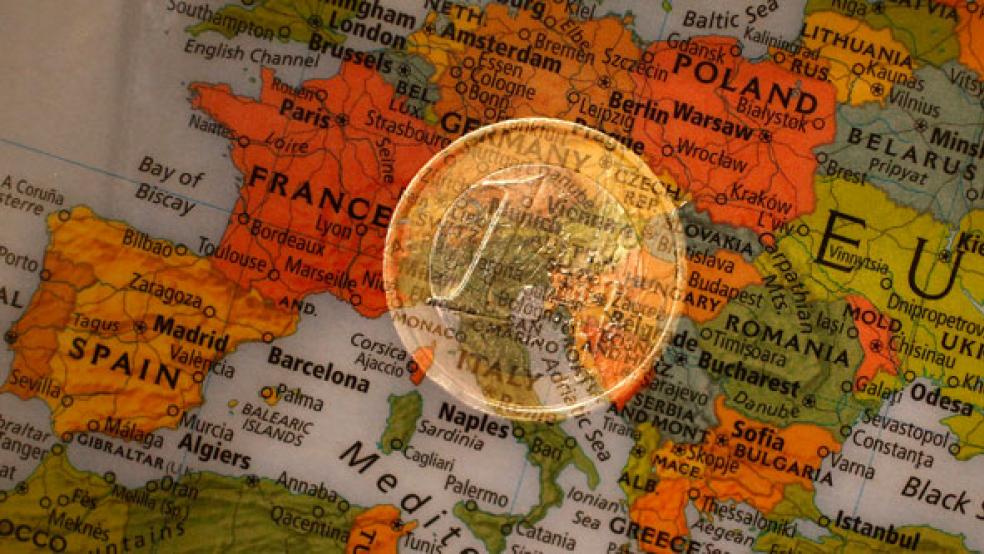Investors want more from European Central Bank President Mario Draghi.
The central bank on Thursday held interest rates at record low levels, as expected, and it provided some details about the bank’s previously announced plans to buy up asset-backed securities and covered bonds. Draghi also defended the central bank’s efforts to shore up and boost the European economy in recent years.
"We've done a lot," Draghi told reporters at a press conference in Naples, according to Reuters.
Investors, for today at least, were disappointed that Draghi isn’t doing more — particularly that he didn’t specify that size of the asset-purchase plans or signal an imminent quantitative easing program in which the bank would buy government bonds.
“Initially at least, the markets seem underwhelmed by the ECB’s latest words and actions, with the apparent failure to move any nearer to QE causing the euro to firm and European equity markets to weaken,” IHS Global Insight Chief European and U.K. Economist Howard Archer wrote in an email.
The STOXX Europe 600 Index plunged 2.4 percent on heavy selling that carried over to U.S. markets.
Related: Is the Market Bubble About to Burst?
Analysts read the lack of a mention of QE as a sign that Draghi and the central bank still face opposition to such a stimulus program, especially from German central bankers.
The ECB said its purchases of covered bonds would start in the second half of this month, while the purchases of asset-backed securities would begin before the end of the year. Draghi said that the programs would last for at least two years and that the purchases would result in a “sizeable” expansion of the bank’s balance sheet, returning toward levels from the beginning of 2012, some €1 trillion higher. Draghi did not detail just how sizeable it would be, though.
Draghi said the asset-purchase programs would be “as inclusive as possible, but with prudence” — meaning that bundles of loans from countries with low credit ratings, such as Cyprus and Greece, would be part of the program as long as they meet the ECB’s criteria. That was still too vague for investors eager for all the detail they could get.
Related: What Happens When the Fed Stops Propping Up Stocks?
The ECB did leave the door open to using “additional unconventional instruments within its mandate” if necessary to address the risks presented by a long period of low inflation.
“While this indicates that the option of full-blown quantitative easing involving large-scale purchases of government bonds is still very much on the table, the suspicion remains that the bar for this remains very high given clear, repeatedly stated German qualms,” IHS economist Archer wrote.
Given a dismal economic recovery across much of Europe, including recent sputtering of the German economic engine and persistently low inflation, any further weakness could force the central bankers’ hands. “Certainly, if Eurozone economic activity fails to see any meaningful pickup over the next few months and inflation dips lower still, the pressure for QE will rapidly mount further,” Archer said.
Top Reads from The Fiscal Times:
- Walmart Just Won Its Long Battle with Banks
- Eric Holder’s Shameful Legacy on Wall Street Fraud
- Instead of QE, the Fed Could Have Given $56,000 to Every Household in America





